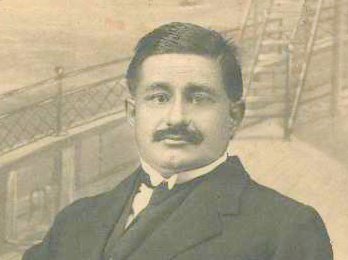
Azeem Khan also played an important role in the case of Sindh’s separation from Bombay Presidency, which G. M. Syed has eulogized in his book.
By Col ® Hassan Imam
It was perhaps 2018 when Sindh Cooperative Society invited bids for the auction of a historic building situated in front of Radio Pakistan Hyderabad, in complete violation of the law, as in 2009, Sindh Culture Department had declared the building as a protected heritage under the Sind Cultural Heritage Preservation Act 1994. Thank God the building was saved from auction and demolition after the media highlighted the issue, and was later renovated by the Culture Department.
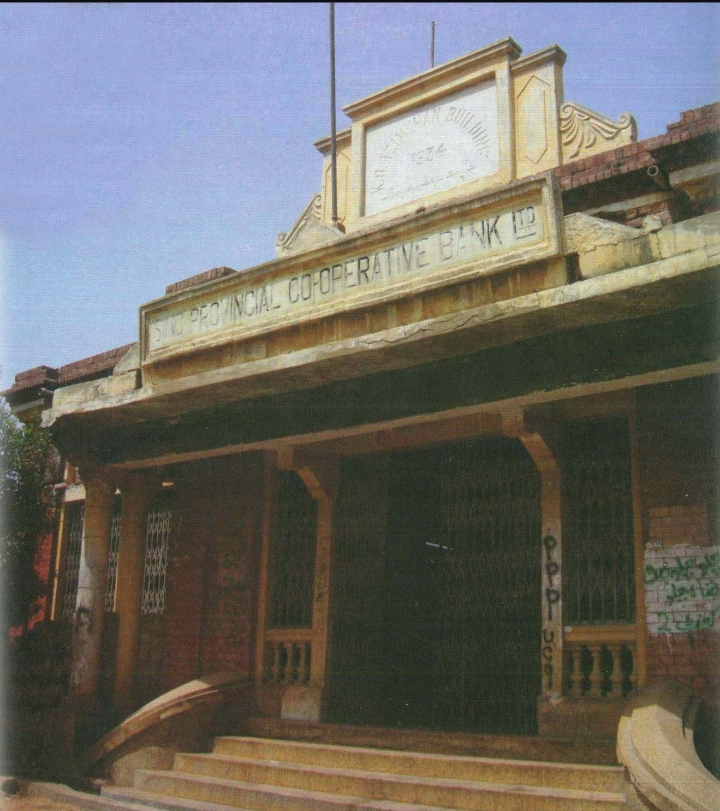 This historic building housed the first Cooperative Bank of Sindh built by none other than Khan Bahadur Azeem Hussain Khan Durani in 1934. Although, the plaque affixed on the building bears the name of Sindh Cooperative Bank and its founder, and in official record it is known as ‘Azeem Khan Building’, but I am sure a very few people are aware of the history of Sindh Cooperative Bank and Khan Bahadur Azeem Hussain Khan Durani.
This historic building housed the first Cooperative Bank of Sindh built by none other than Khan Bahadur Azeem Hussain Khan Durani in 1934. Although, the plaque affixed on the building bears the name of Sindh Cooperative Bank and its founder, and in official record it is known as ‘Azeem Khan Building’, but I am sure a very few people are aware of the history of Sindh Cooperative Bank and Khan Bahadur Azeem Hussain Khan Durani.
This gorgeous edifice of gothic architecture was built during the days of cooperative society’s movement on a most vital artery of the city in 1934, when Sindh was still under the Bombay Presidency.
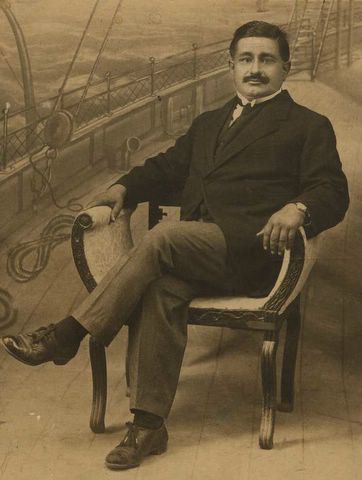
The first occupant of the building was Khan Bahadur Azeem Khan, leader of the cooperative movement and the first deputy registrar of the Cooperative Society, Sindh.
Let me share here briefly the background of this great person, being a close friend of his great grandchildren.
Khan Bahadur Azeem Hussain Khan was one of the unsung heroes of Sindh, whose ancestors are said to be hailing from Afghanistan, and had permanently settled in Sindh during Talpur rule becoming integral part of Sindhi culture and society. And being the son of soil, Azeem Khan played a pivotal role in transformation of Sindhi society.
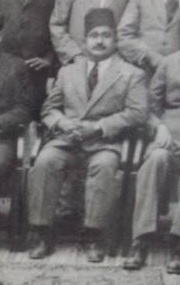 Born in Zaonr village in Deh Hoosrri, a small village near Hyderabad in 1882, Azeem Khan was the pioneer of the Cooperative Movement in Sindh. He was also among those sons of Sindh who quietly and covertly fought the Sindh separation case from Bombay Presidency.
Born in Zaonr village in Deh Hoosrri, a small village near Hyderabad in 1882, Azeem Khan was the pioneer of the Cooperative Movement in Sindh. He was also among those sons of Sindh who quietly and covertly fought the Sindh separation case from Bombay Presidency.
Khan Bahadur Azeem Hussain Khan’s family had later shifted to Hala town. When his father Inayat Ali khan Durani died in 1886, Azeem Hussain Khan was just 4 or 5 years old. His father Inayat Ali khan was Sub Inspector in Police. His wife was from Burrdi tribe and granddaughter of Hameer Khan Burrdi.
Durrani family got settled in Sindh during Talpur rule due to family issues in Afghanistan. There is a Persian letter regarding settlement between the families under their Murshid’s guarantee, kept in family archives with my class fellow Azeem Hussain Khan, the great grandson of Khan Bahadur Azeem Hussain Khan.
Azeem Hussain Khan was brought up in Hala under supervision of Qazi Mian Abdul Wahid, whose ancestors were probably from Afghanistan and had got the title of Qazi during Durani dynasty. Initially they were settled in Sehwan Sharif. But they all had accepted Sindh as permanent abode and went very loyal to motherland Sindh.
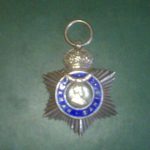 Khan Bahadur Azeem Hussain Khan got married from Burrdi family and kept the friendly relations and traditions strong. His wife Jam Zadi was youngest daughter of Muhammad Hashim Burrdi and granddaughter of Hameer Khan Burrdi. She was aunt of Abdullah Khan Burrdi.
Khan Bahadur Azeem Hussain Khan got married from Burrdi family and kept the friendly relations and traditions strong. His wife Jam Zadi was youngest daughter of Muhammad Hashim Burrdi and granddaughter of Hameer Khan Burrdi. She was aunt of Abdullah Khan Burrdi.
Khan Bahadur Azeem Hussain Khan was a nationalist, honest and caring person. He opened a school near Hyderabad city’s area which is now called Goods Naka, or Allahdad Chand Village.
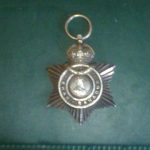 Khan Bahadur Azeem Hussain Khan achieved the great social status in society being in service, and had retired as Collector Sahib Bahadur. He served on various important positions during the British Raj. After his retirement he was nominated the member of Bombay legislative council as a technocrat. He was titled twice by the Raj – Khan Sahib in 1921 and Khan Bhadur on 1st January 1923.
Khan Bahadur Azeem Hussain Khan achieved the great social status in society being in service, and had retired as Collector Sahib Bahadur. He served on various important positions during the British Raj. After his retirement he was nominated the member of Bombay legislative council as a technocrat. He was titled twice by the Raj – Khan Sahib in 1921 and Khan Bhadur on 1st January 1923.
He was appointed as Collector of Thar Parker at Mirpur Khas in 1934 and served under the Commissioner in Sindh Raymond Evelyn Gibson, ICS. Nationalist leader G. M. Syed in his book ‘Janab Guzariyam Jin Seen’ has paid rich tribute to Azeem Hussain Khan for his tremendous services and caring behavior with friends and foes. G. M. Syed also credits Azeem Khan for valuable legal advices on separation of Sindh case. Syed further writes that “I became Director of Sindh Cooperative Bank with all out help of Azeem Hussain Khan. He was the one who helped me making a good career before Partition.”
Azeem Hussain Khan was blessed with a son in 1904 and he named him after his father Inayat Ali.
My mother recalls that they lived a few days as our guest in Hyderabad house as family tradition.
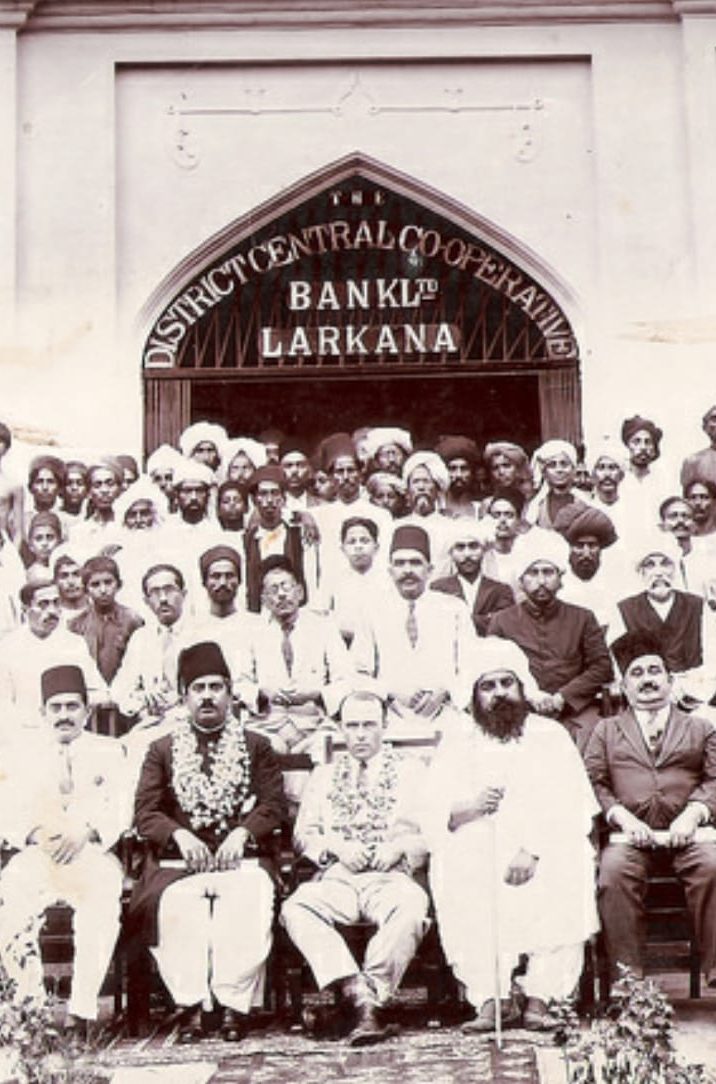
Unfortunately, after some years Azeem Khan’s eldest son died and that shocking and untimely death of child brought sorrows in life of whole family. Azeem Hussain Khan asked for leave from service on medical grounds. Later, Allah blessed him another son in 1914, and again he named him after his father. Azeem Khan was also blessed with a daughter who was married to Qazi family. She had son named Munawar Hussain Qazi, father of my class fellow and a daughter who is mother of Tahir Qureshi (Second wife of well-known lawyer and freedom fighter Comrade Hafeez Qureshi)
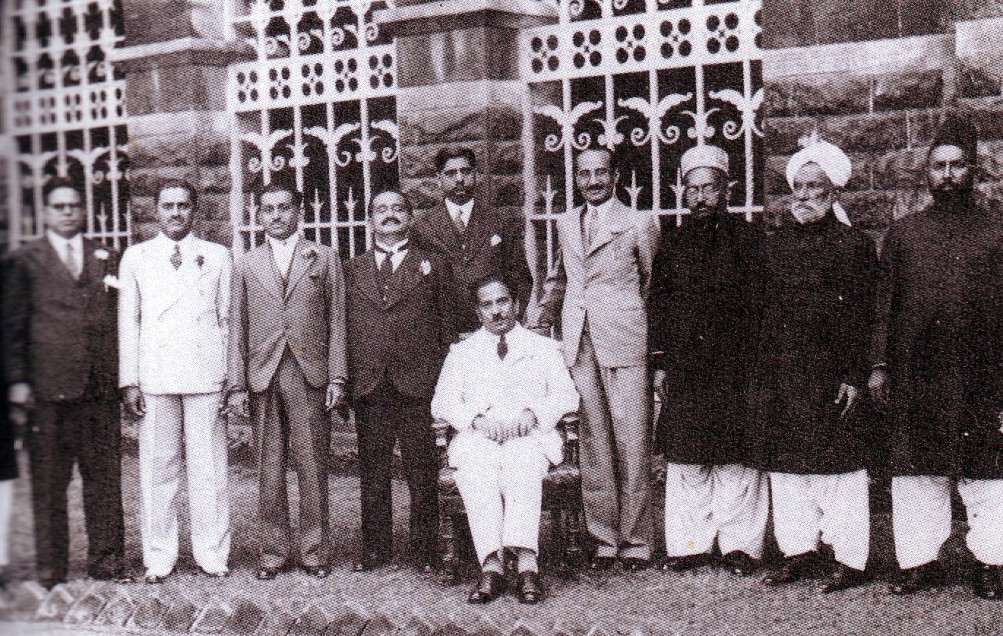
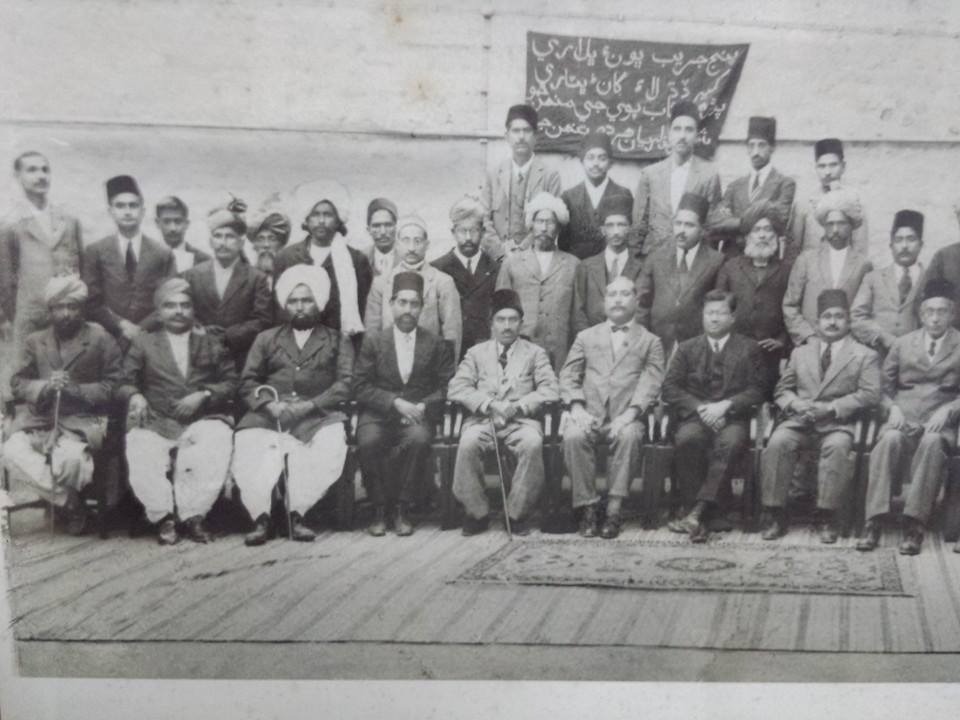 Khan Bahadur Azeem Hussain Khan’s son Inayat Ali Khan was friend and school fellow of my father, who studied together in Vidyala high school Hyderabad. Qazi Akbar, Ali Hassan Kadri my father, Ghulam Rasool Burrdi my maternal uncle, a police officer (Martyred on 23 January 1947 at Bhanote outpost on banks of river Indus), were all school fellows.
Khan Bahadur Azeem Hussain Khan’s son Inayat Ali Khan was friend and school fellow of my father, who studied together in Vidyala high school Hyderabad. Qazi Akbar, Ali Hassan Kadri my father, Ghulam Rasool Burrdi my maternal uncle, a police officer (Martyred on 23 January 1947 at Bhanote outpost on banks of river Indus), were all school fellows.
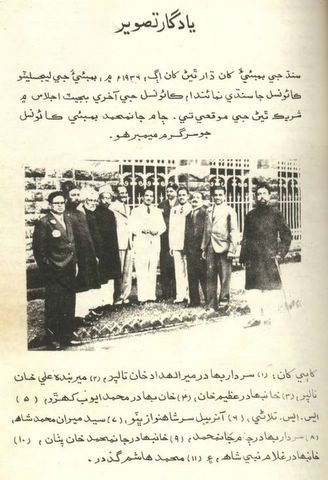
Inayat Ali Khan passed away in 1961 and had no child. His only heir was his nephew Qazi Munawar Hussain, who is father of my class fellow and course mate Azeem Hussain Khan, now living in Abu Dhabi. Inayat Ali was not only friend but relative, so he kept his relationship strong and active with our family. They never forgot their old village and farmers in village Zaonr and always supported them financially.
Coincidently his grandchildren Tahir Qureshi and Azeem Hussain Qazi became my buddies and very good friends. We studied in same class from class three to matric in model school. I remember the caring and love of their parents when I used to visit them during school days. We were not knowing about our ancestral relations till the time we were grownup and matured.
___________________
 Col. Hassan Imam, hailing from Ratodero, Sindh is based in Karachi after retirement from Pakistan Army. Besides serving in different regions of country, he spent many years in Inter Services Public Relations (ISPR) in Karachi. He also had been part of UN Peacekeeping Force in African countries.
Col. Hassan Imam, hailing from Ratodero, Sindh is based in Karachi after retirement from Pakistan Army. Besides serving in different regions of country, he spent many years in Inter Services Public Relations (ISPR) in Karachi. He also had been part of UN Peacekeeping Force in African countries.